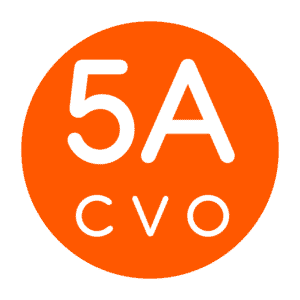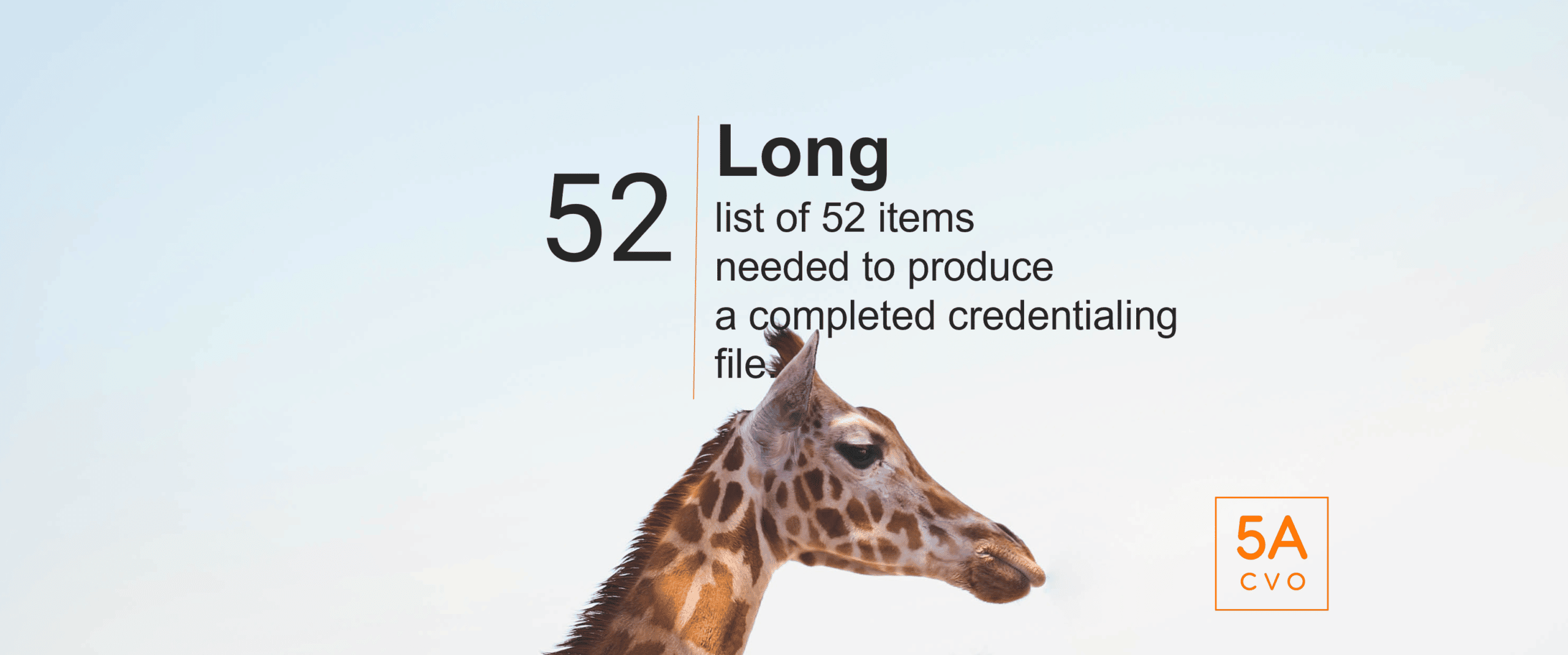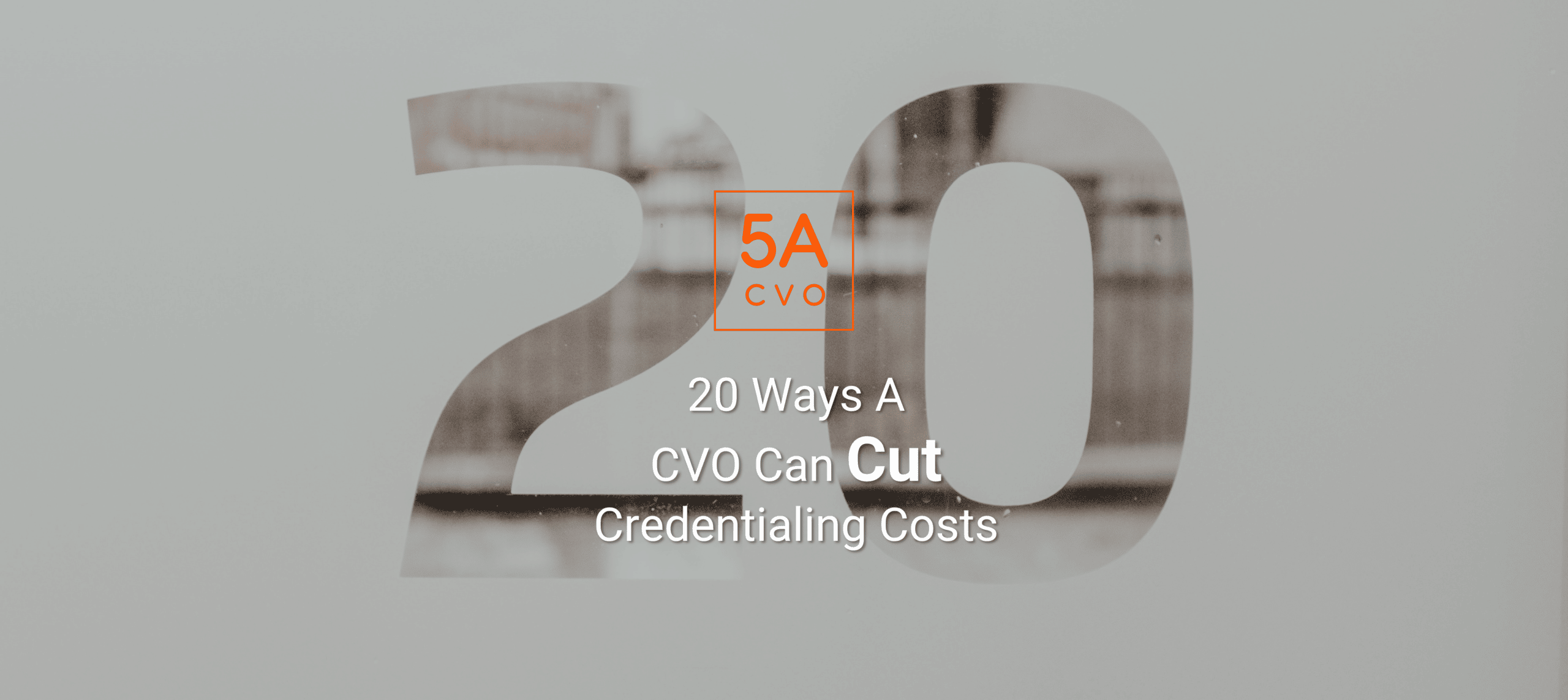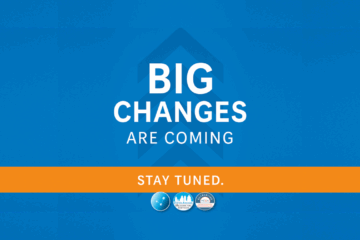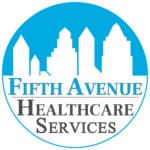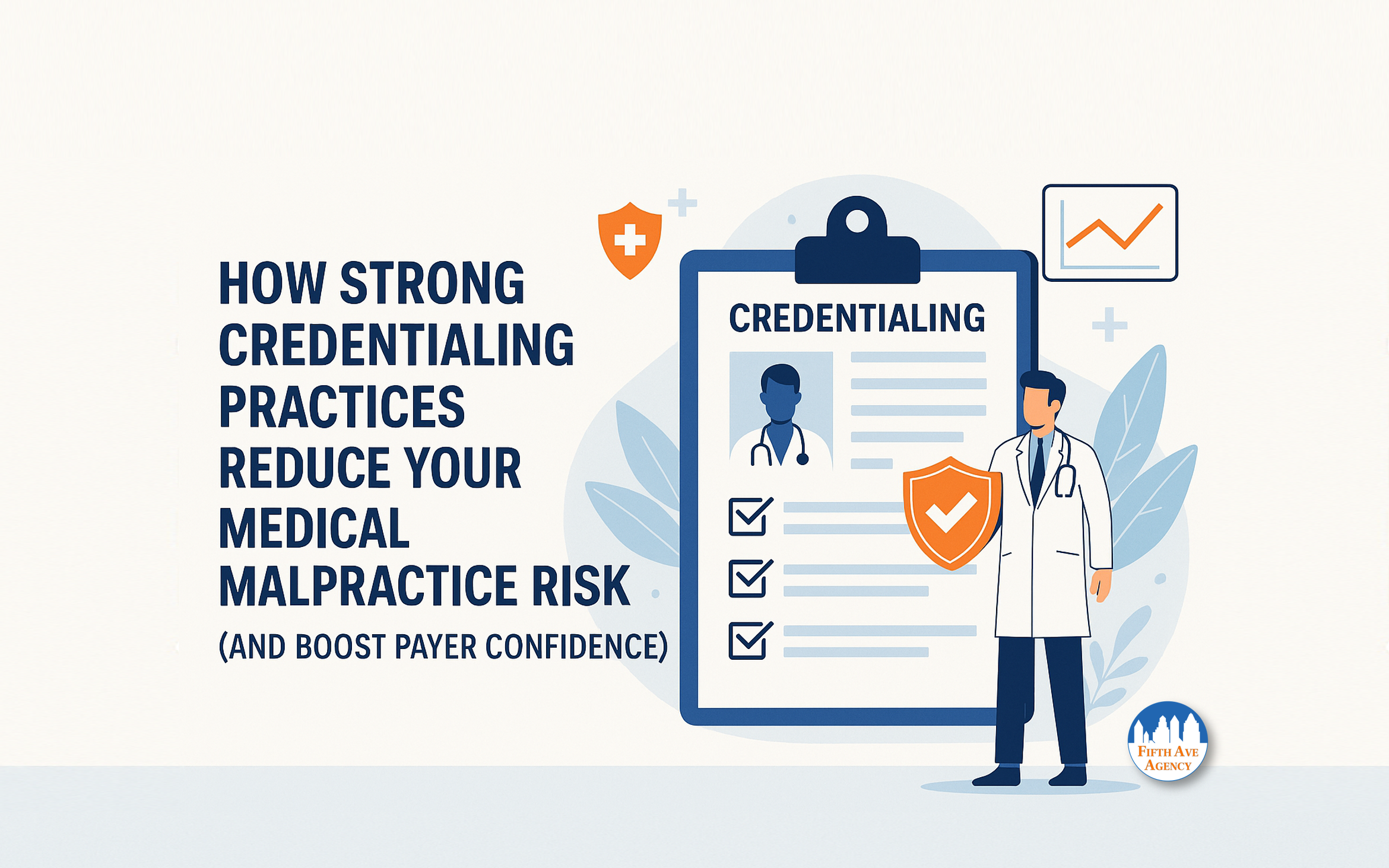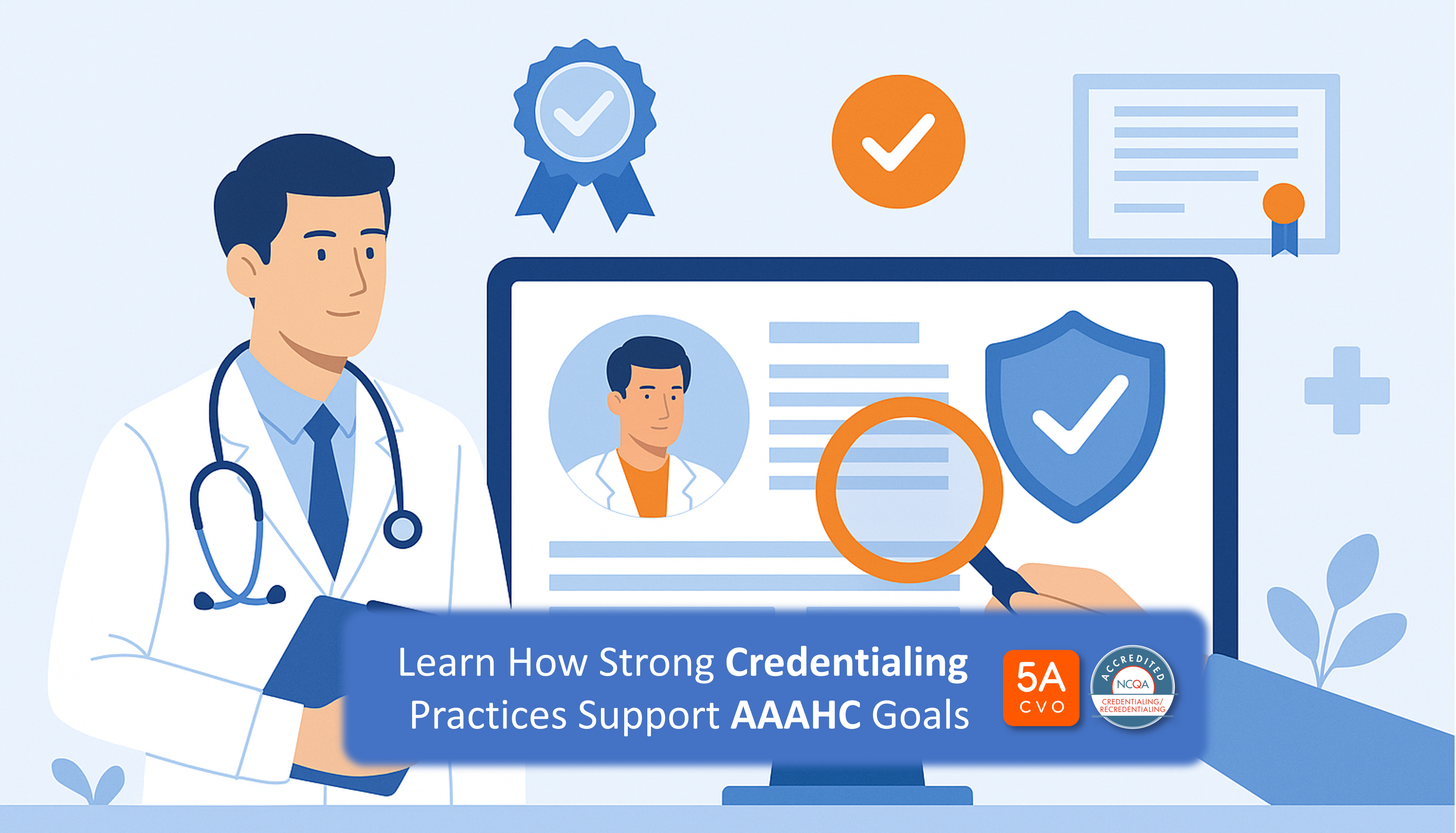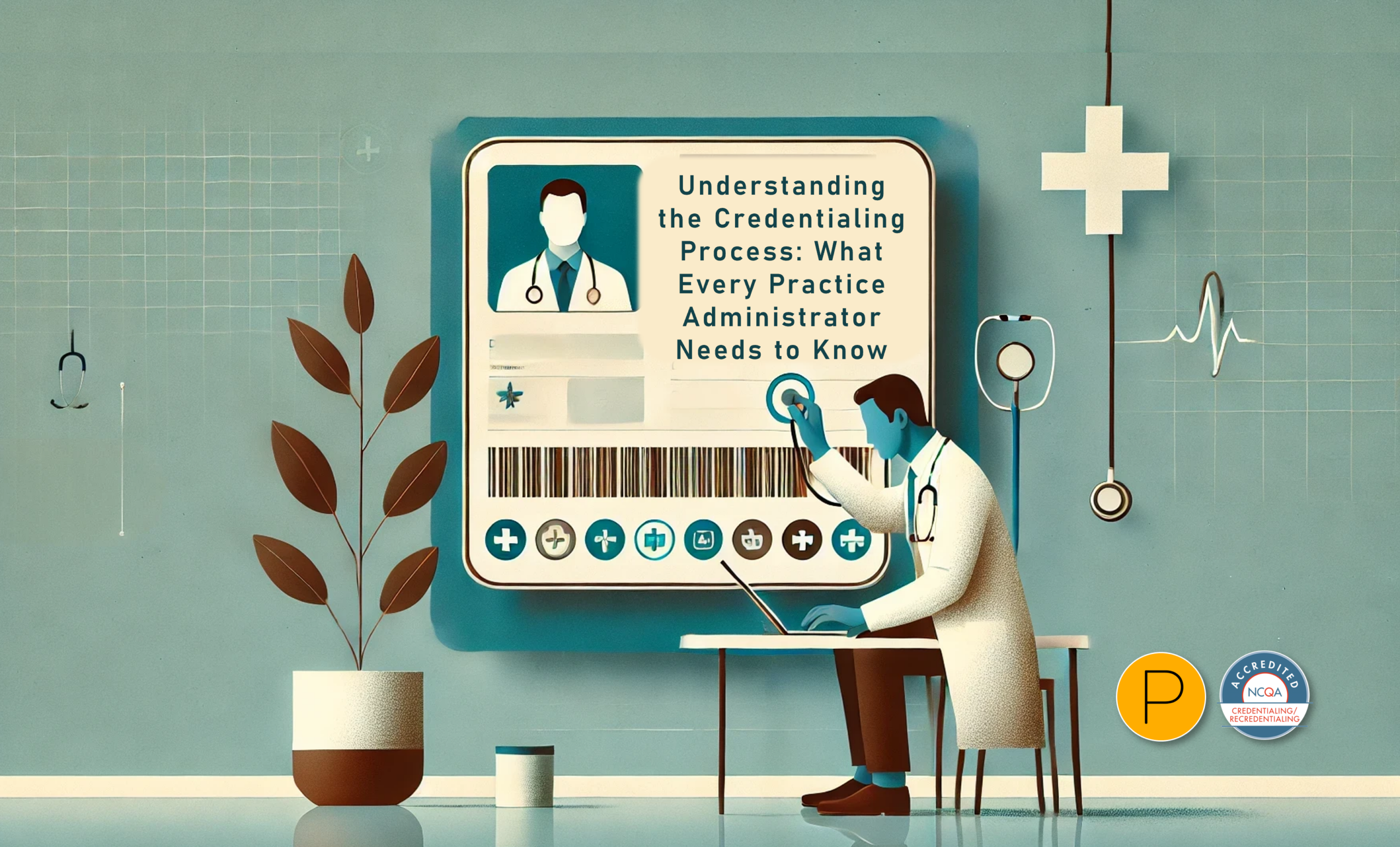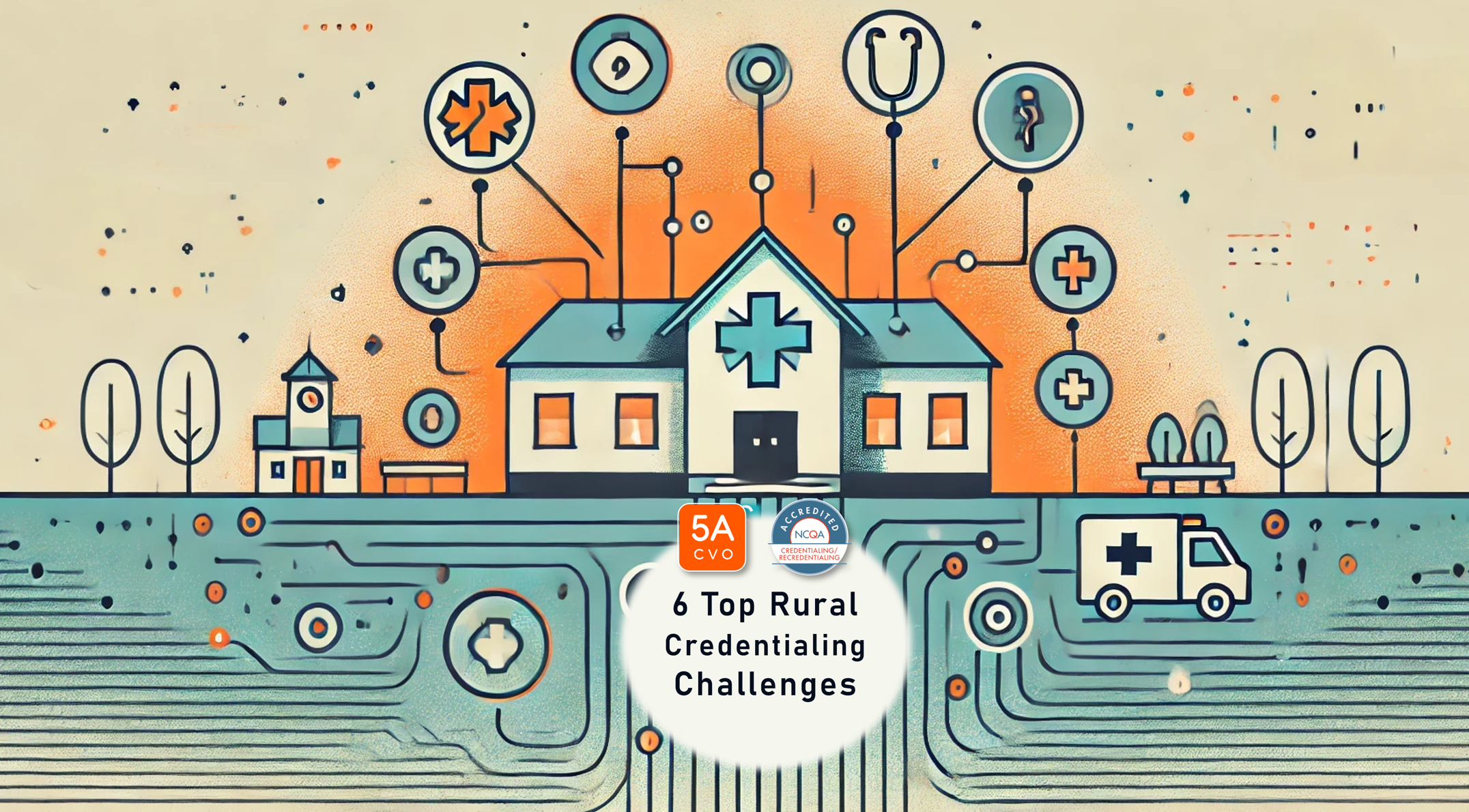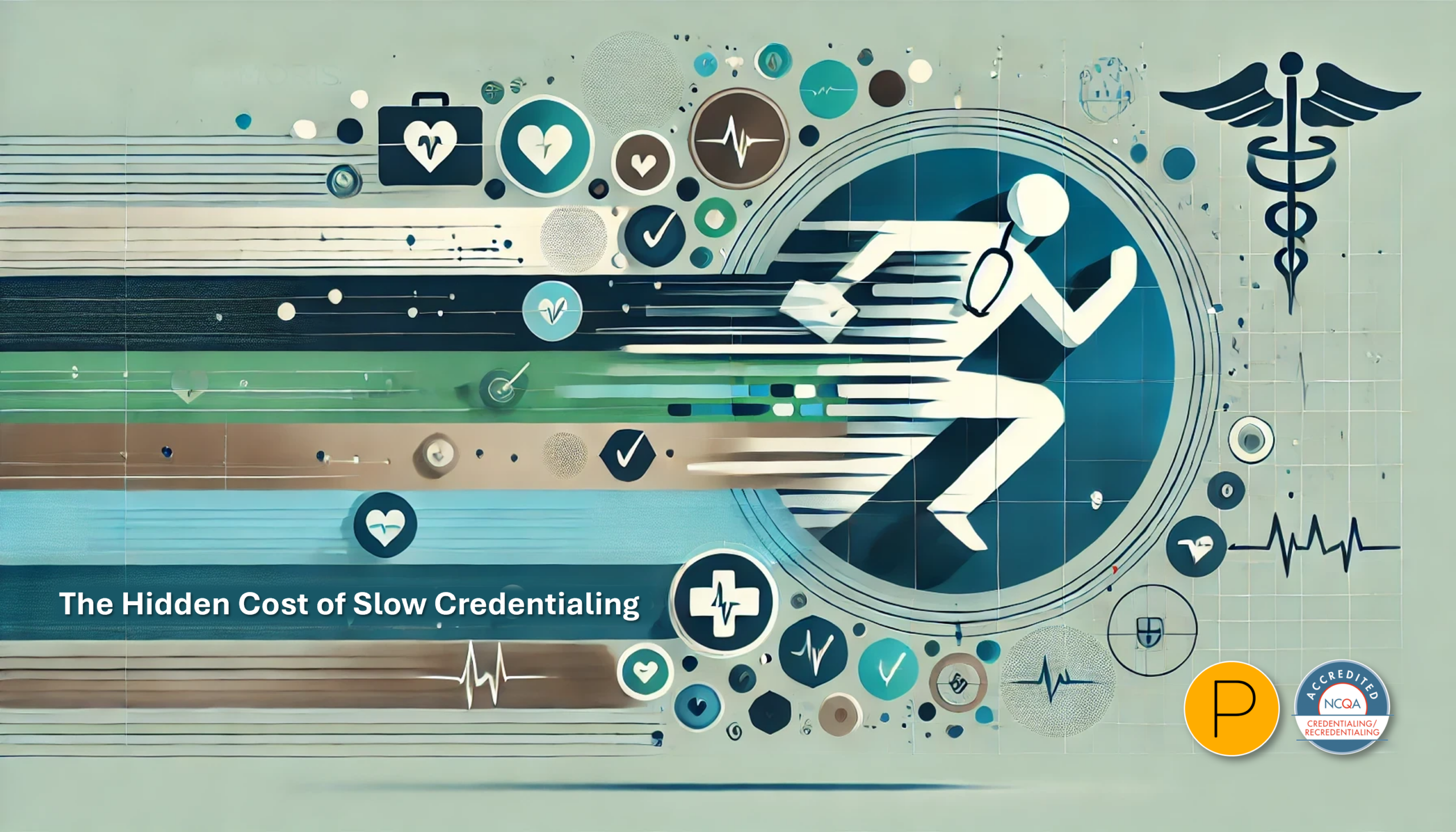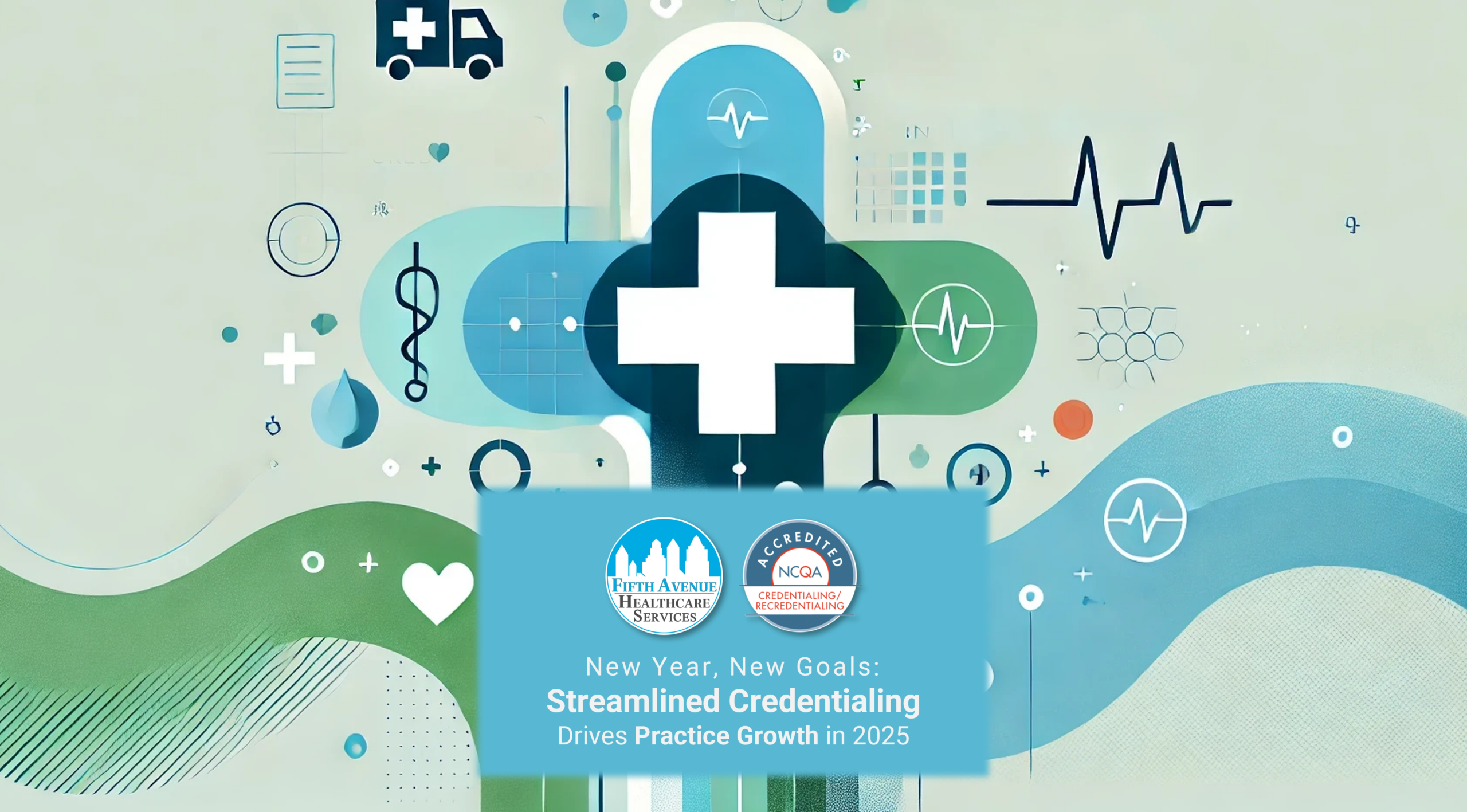Many healthcare providers rely on outside credentialing services to administer their credentialing needs, while others maintain the process in-house. Credentialing is a necessity for every healthcare provider. If a provider’s expertise is not correctly verified, medical malpractice risk can increase. Medical malpractice can harm a patient’s health and life as well as a provider’s reputation and financial status.
The credentialing process is slow and meticulous since it involves using many pieces of information to verify a person’s identity and experience. The traditional process consists of 52 action items. These steps include handling provider application packets, obtaining privilege forms, and ordering criminal background checks.
Because of the complexity and length of this entire process, there is a possibility of error or miscommunication. Since the process takes time, staff may struggle to balance their workload and complete their responsibilities. Therefore, many healthcare providers rely on a credentials verification organization (CVO) for credentialing services.
A CVO works with organizations to provide primary source verification (PSV) of a healthcare provider’s experience and qualifications. As CVOs focus solely on verifications, studies show that the CVO can complete the process more effectively and efficiently than in-office staff. This can result in benefits for practices and their patients.
7 benefits to outsourcing credentialing services include:
- Reducing Human Errors.
- Cutting Costs.
- Speeding Up Processing.
- Mitigating Security Risks.
- Streamlining Process Complexity.
- Decreasing Non-Profit Producing Activities.
- Boosting Practice Staff Morale
1. Reduce Human Error by Outsourcing Credentialing Services
CVOs employ credentialing service experts with the skills to manage all the necessary steps to verify a provider. For example, 5ACVO’s team has 385+ years of combined experience. Over 63% of the team has 10+ years of industry experience. Extensive knowledge of current standards and procedures can expedite the process and help providers work faster.
In-office employees who may not know the intricacies of credentialing could make mistakes that can delay the process. This would cause providers to start working later than intended, negatively affecting revenue. Billing cannot begin if providers cannot work.
In addition, medical practices that outsource credentialing to a team of experts will have more time to focus on the core responsibilities they have been trained and hired for. Increased productivity is yet another feature that CVOs can furnish medical practices.
2. Cut Costs by Outsourcing Credentialing Services
Outsourcing credentialing might save money if a financially beleaguered practice wants to reduce costs.
Typical in-office credentialing costs can include the following:
- $72,725 per year: the salary for a credentialing specialist.
- $400 a month: credentialing computer software.
- $7,000+: one provider’s credentialing application (processing and assortment of administrative fees).
Practices can eliminate these costs by using a CVO. Having these expenses can be a burden on any annual budget. Cutting costs can help increase profitability.
3. Speed Up Processing by Outsourcing Credentialing Services
The standard credentialing process takes an average of 90-120 days from start to finish. If any problems arise during this time, the process can stretch past 120 days. This delay can deprive a medical practice of revenue the provider could bring in during that time.
The 52 conventional credentialing steps to complete the standard credentialing process cannot be skipped to save time. Using a CVO that has reduced the 52 steps to 6 simple steps is a safe way to speed up the procedure so providers can get to work sooner.
More billing opportunities can drive more revenue to a medical organization. Additional billing revenue for each credentialed provider can total $47,196. CVOs can help increase profits. Practices can use this money to improve their facilities and hire more staff. They might also be empowered to open new locations and develop other revenue possibilities.
4. Mitigate Security Risks by Outsourcing Credentialing Services
Privacy is a significant concern in today’s world. Medical information is perhaps the most sensitive data that needs special consideration. The same applies to the abundance of details a provider must submit for credentialing.
Outsourcing credentialing can reduce security risks. Cloud-based solutions can reduce the need to maintain physical paperwork – paperwork containing confidential data that can be used against providers and their practices.
5. Streamline Process Complexity by Outsourcing Credentialing Services
It takes time to complete the required 52 conventional credentialing steps to have a completed credentialing file in hand. Medical organizations can simplify what they need to do on their end when they hire a CVO. For instance, 5ACVO has lowered the number of steps to 6 simple steps. This aspect strengthens process efficiency.
5ACVO also streamlines the process by giving its users one point of contact. Concentrating tasks into a funnel can make people’s jobs and lives easier. One point of contact means there is only one expert to contact should an issue or question emerge.
6. Decrease Non-Profit Producing Activities by Outsourcing Credentialing Services
According to a Harvard study, a healthcare provider in the United States spends an average of 43 minutes daily on health plan administrative obligations. This adds up to approximately 261 hours a year.
Outsourcing medical credentialing can help decrease this amount of time, giving time back to providers so they can focus on building their practice, increasing billing, and elevating profitability.
Quicker turnaround times can aid providers in delivering better services to their patients. Better service can equate to a higher level of patient retention. This creates a continual cycle of revenue. Also, patients who are satisfied with their physicians might likely recommend them to their friends and families. Providers and their practices can tap into this more significant source of income.
7. Boost Practice Staff Morale by Outsourcing Credentialing Services
Medical service is not a stress-free industry. Taking care of other people’s lives takes a toll on physicians and even medical staff who do not necessarily provide treatment.
A practice’s morale affects the way they interact with patients. Doctors suffering from burnout might not care enough to do their jobs properly. They might also face physical fatigue and be unable to perform consistently and accurately. Apathetic office employees can harm their practice’s image. Patients might not return to practice if they feel ignored or disrespected.
Removing arduous work can alleviate the stress of everyone who works in a practice. Outsourcing credentialing is one method to truncate the quantity of strenuous labor. This can raise practice morale and improve employee and patient environments.
Medical organizations that outsource credentialing can enjoy multiple benefits, allowing their reputations and profit margins to grow. Creating safe work conditions has never been easier to achieve.
More information about 5ACVO
5ACVO is a NCQA Credentialing Accredited CVO specializing in credentialing and primary source verification and is part of the Fifth Avenue Healthcare Services family. 5ACVO sister companies include Fifth Avenue Agency (MPLI and medical malpractice insurance specialists) and Primoris Credentialing Network (credentialing and provider enrollment specialists with 54+ health plan and network provider enrollment options).
5ACVO originally published this article here. For more information on 5ACVO, please visit 5ACVO.com or Contact Us.

